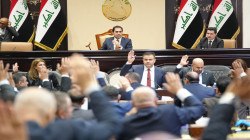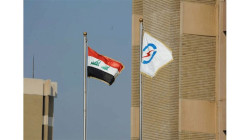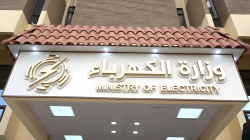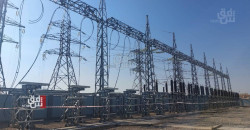Iraq's Ministry of Electricity contracts private entities for fee collection amid fears of corruption
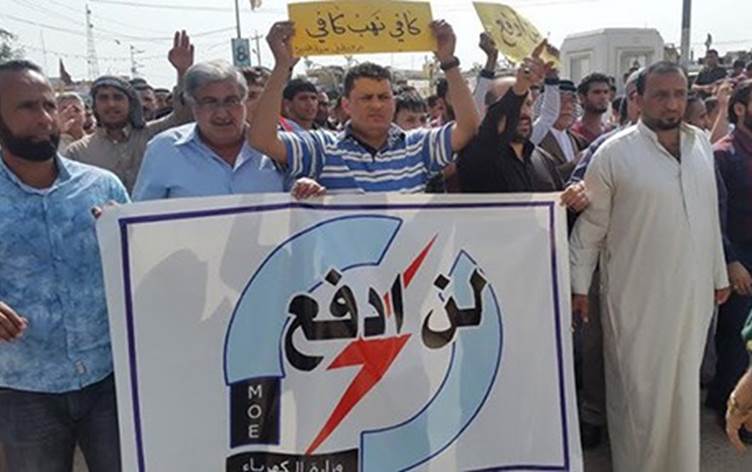
Shafaq News/ Despite the considerable workforce within the Iraqi Ministry of Electricity entrusted with collecting electricity consumption fees from consumers and the transition to electronic payment methods since 2022 to facilitate direct settlements, the Iraqi Ministry of Electricity has undertaken an unconventional approach.
The ministry has engaged in contracts with private entities to collect these fees. This strategic shift has prompted inquiries into the rationale behind these contracts, which have raised concerns regarding potential corruption and financial oversight, as noted by observers familiar with the matter.
The Iraqi Ministry of Electricity spokesperson Ahmed Moussa stressed that "the contracted companies are enlisted to provide comprehensive services beyond mere fee collection. Each contract is meticulously structured to delineate responsibilities and obligations between the ministry and the contracted entities."
Moussa elucidated that "these contracts not only stipulate service provisions but also entail commitments from both parties aimed at ensuring accountability and efficiency in the collection process."
In an exclusive interview with Shafaq News Agency, Moussa pointed out that "the contractual agreements with service and collection companies encompass provisions for the utilization of Ministry of Electricity personnel. Specifically, these agreements mandate the employment of 80% of the ministry's workforce, with their salaries secured within a predetermined percentage, typically set at 12.9%."
"This arrangement ensures a symbiotic relationship where contracted companies compensate ministry employees for their services while fulfilling their designated roles in the fee collection process. Additionally, any surplus funds are directed towards bolstering the Ministry of Electricity's financial resources."
Moussa further emphasized that "despite the integration of service and collection companies, there is no displacement of existing ministry employees."
PERPLEXING MATTER
An employee at the electricity collection center in Al-Karkh expresses her bewilderment, stating, "The electronic transfer of electricity consumption fees by private companies is indeed perplexing. We have fulfilled this task for a considerable period, generating billions in monthly revenues. What necessitates the engagement of a private entity in this task?"
Speaking to Shafaq News Agency on condition of anonymity due to the sensitivity of the matter, she explained, "In previous years, citizens hesitated to settle electricity fees due to various reasons, notably the unstable electricity supply to homes, leading to reliance on private generators over national electricity. However, the situation has improved in recent years, with most areas of Baghdad settling fees routinely."
"During Haider al-Abadi's government, electricity privatization efforts commenced but halted after a while. This allowed limited private companies to gain control over the Ministry of Electricity, monopolizing fee collection in their favor, thus preventing other companies from obtaining collection contracts and competing."
She asserted, "Since then and until this year, private companies have handled collections alongside us, yielding substantial revenues for the ministry. There seems little rationale for revisiting privatization, especially considering that private companies opt to dismiss all permanent staff, citing their high salaries, and rely solely on contract employees whose monthly salaries do not exceed 500,000 IQD."
"Al-Karkh Electricity Distribution Company already grapples with functional stagnation and convincing unemployment. Reverting to it would result in job inflation. Where will we sit and fulfill our duties with departments already overcrowded?"
She concluded, "This measure resembles punishment for many collection center employees. For instance, at Al-Karkh collection center, many of our employees reside far from the company's premises. They have children attending schools, nurseries, and kindergartens. What will become of their children?"
"ACTUAL PUNISHMENT"
Another employee clarified that "reassigning collection center employees to their original departments is a tangible punishment, not an administrative measure benefiting the state. The collection center where I work is located 40 kilometers away from Al-Rusafa Electricity Distribution Company to which our center reports."
She revealed to Shafaq News Agency, "I must wake up at least by 05:00 a.m., and the issue is not merely when I wake up but what I do with my children, both of whom are in school. Should I send them to their schools before they open early in the morning? Then, after school ends, where will they go when our home is locked because my husband is also an employee?"
Karrar pointed out, "The percentage that the private collection company will receive is akin to a favor extended by the Ministry of Electricity and the government to the company, rather than this percentage going into the state treasury. What, then is the benefit, especially considering that electronic payment of electricity bills has been in effect since last year? Whether government employees or private companies manage the collection center, it makes no difference."
On his part, Basim Al-Ghraibawi, a member of the Parliamentary Oil and Gas Committee, asserted, "The substantial number of employees should be utilized. It is unreasonable to leave those appointed burdening the budget and bringing in companies that also cost the state. Therefore, existing ministry employees should be invested in."
He added to Shafaq News Agency, "Ministries, including the Ministry of Oil, claim to have surplus employees during visits. Hence, these employees should be utilized instead of contracting with these companies."
"TAXATION IS ITS SOLE ROLE"
On the other hand, the director of a collection center on the outskirts of Baghdad, who preferred anonymity, believed that "the electricity privatization project has not served the Ministry of Electricity or the state. The companies previously contracted failed to adhere to the contract terms, which included maintenance work, upgrading power transmission lines, and more. These companies only focused on fee collection, with substantial amounts paid to their general managers in exchange for their silence."
He pointed out, "Returning to private companies for electricity fee collection after adopting electronic payment cannot be justified under any pretext. Citizens can now pay directly through MasterCard, with funds going directly into the Ministry of Electricity's bank accounts. Therefore, whether employees or private companies manage the collection centers, they serve no fundamental purpose."
He continued, "I find no justification for this absurd operation other than benefiting a high-ranking official or group of officials who will profit from this process, enhancing their balances acquired through bribery and financial corruption. Otherwise, it has no rationale, especially since the situation is not limited to the Ministry of Electricity alone but also encompasses water consumption fee collection centers and fuel stations. This implies that bribes, in my estimation, amount to tens if not hundreds of billions of dinars."
Noteworthy, fuel filling stations in the capital Baghdad began adopting electronic payment in April 2023.
The Central Bank of Iraq (CBI) announced in June 2023 the implementation of Iraqi Cabinet Decision No. (23044) for the year 2023, aimed at increasing the number of electronic payment devices in government institutions and the private sector to promote a culture of electronic payment and collection, and reduce the use of cash in fee collection and commercial transactions.
DOUBTS OF CORRUPTION
In turn, the economic affairs researcher Ahmed Eid, asserted that "automation projects for fee collection and data are imperative in light of the technological advancements witnessed globally. This can be achieved through electronic collection applications integrated into a unified system controlled by the Ministry of Finance through national companies, independent of privatization, as long as the equipment remains under the purview of the Ministry of Electricity."
Eid emphasized to Shafaq News Agency, "Handing fee collection to private companies owned by individuals or entities not transparently affiliated with the state raises significant suspicions. It opens avenues for corruption and financial control."
He affirmed that "the preferable approach in this direction is for fee collection to be conducted by Iraqi banks through their electronic applications or through a unified application specific to the Ministry of Electricity directly linked to Iraqi banks for fee settlement."
Furthermore, he added, "Many countries, including neighboring ones to Iraq, utilize banking applications to settle their daily expenses, including electricity bills. This allows state oversight of financial transactions and control over fee revenues, away from fraudulent activities, corruption, and manipulation."
ELECTRONIC TAX COLLECTION
Notably, the Iraqi Ministry of Electricity launched the electronic fee collection project on June 14, 2022, making it available to citizens both within and outside the country. The initial phase of the project included residents of the Basmaya Complex and Al-Jamiaa neighborhood in Baghdad.
According to a statement from the Ministry of Electricity's media office, "The Ministry of Electricity, in collaboration with the Iraqi e-Payment Gateway Company, announced the launch of the electronic fee collection project for electricity consumption fees." This initiative came "as part of activating the digital transformation plan and enhancing its features in managing administrative, financial, and technical operations in the Ministry of Electricity and all its public companies."
The statement further clarified that the project was launched "initially for the residents of Al-Jamiaa neighborhood in Al-Karkh district and Basmaya residential complex in Al-Rusafa district, according to the electricity lists issued by the public electricity distribution companies, which reach citizens through meter readers for all categories (residential, agricultural, industrial, and commercial)."
Moreover, it stated that "citizens can now inquire about and pay their electricity bills electronically, both within and outside Iraq, for a nominal fee (only 750 IQD/ 0.57$), through the dedicated application 'Electricity Bills - Iraq', or through electronic payment points at authorized agents in Al-Jamiaa neighborhood and Basmaya residential complex, without the need to visit collection centers. Additionally, payment can be made through the ministry's official website."
